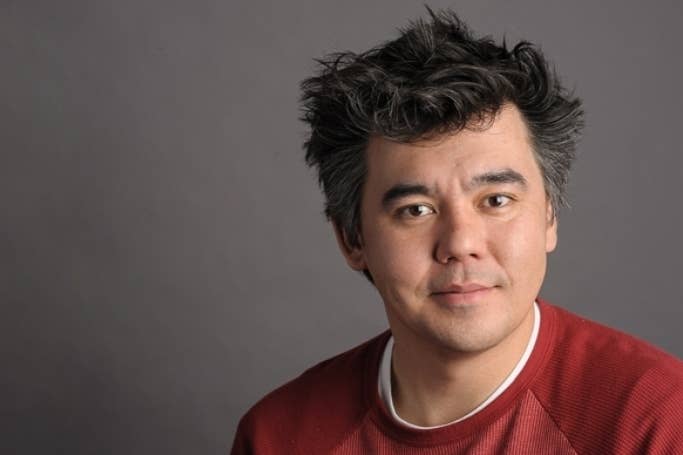Kabam: Adding the prestige to free-to-play
"The traditional publisher/developer model is kind of like the prisoner's dilemma" says president Andrew Sheppard
In a basement room in a hotel in London, the president of Kabam Game Studios Andrew Sheppard is explaining the art of the magic trick as dictated by Christopher Nolan's 2006 film The Prestige. The Pledge, The Turn and The Prestige, otherwise known as the set-up, the trick, and then the extra twist on the trick that sends people crazy.
"We talk a lot about that inside our company," Sheppard says of Kabam's free-to-play business, which is growing at a rapid pace.
"The explicit goal is to deliver on our commitments, what we say. Whether it's a business result, game play experience, launch date, whatever. But the aspiration is to always prestige what we're doing, can we do what was unexpected? And if you can achieve that it's something to talk about, and it makes people to feel good. That's all people want, they want the unexpected."
"Adding countries is just checking a box and it's very easy to do that and to do it poorly"
Kabam launched in 2006, and by 2012 boasted the sort of figures that make accountants need to sit down. $180 million in gross revenue, 70 per cent revenue growth, successful games in 100 countries. Its aim is to be a global company, with services that move with the sun, as Sheppard describes it, and for every game to feel like a local product. That's why he's in London on one of his 120 days on the road this year.
"I always find it funny, and I'm going to bag on Americans for a sec, that Americans will see a foreign product come in to the country, typically from Asia and they'll say 'oh, why would someone build a game like this?' But then at the very same time they'll take Call Of Duty and they'll just shove it into Asia, or Need For Speed and they don't even see those as being logically inconsistent. Kabam is different, we're trying to do things differently," he says.
"When you look at the top grossing countries for us it's US, UK, Germany and France, and the way I look at that is it just speaks to the fact that we should be doing better in Europe. A lot of other companies will look at that distribution and say 'we should double down in the US' or 'we're running properly' and for me that says 'hey, we haven't even invested in Europe the way a European company would and we're fortunate enough to have a pretty large business presence here. So what would actually happen if we thought about things like a European company?'"
Kabam already knows the answer, it recently opened a Berlin office and grew engagement in Europe by ten per cent in two months. Sheppard believes that's thanks in part to the distribution opportunities of mobile. This is a time of global change in the industry, but it has to be done right.

"Adding countries is just checking a box and it's very easy to do that and to do it poorly."
Sheppard is softly spoken and not one for controversial statements, but he is passionate that free-to-play has to be done right, and while discussing why traditional publishers have so far failed to conquer free-to-play, he's firm about the problems they're facing.
"In my humble opinion the traditional publisher/developer model is kind of like the prisoner's dilemma, and it's a finite round version. As soon as you know when the last game is in that [franchise] everyone acts badly and they just try to extract as much value as possible. In a service based model which runs for years, decades, you can't afford to do that. You need to operate with integrity, you have to always optimise for the long term of a relationship," he argues.
But he's not giving up on the competition just yet, there's still a glimmer of hope that they can catch up, as long as they do it fast.
"There are a lot of smart people working at those companies and they do have a lot of resources and they do have time. Time is starting to slip as you see mobile take off, but they ultimately have time. As a corollary the probably don't feel the urgency that they should, but I would like to believe that they could... However history would also say that they won't."
He argues that one of the problems is actually the community that traditional developers see as their bread and butter, the hardcore console gamers.
"As soon as you know when the last game is in that franchise everyone acts badly"
"There is a vocal minority of folks, and increasingly it's the reduction of that gaming community, that don't want free-to-play and they're the stalwarts, the hold-outs. And that is a vocal minority and it's an influencer group a lot of times, right? So I think traditional gets caught in this really difficult spot - which I think is what happened with coin-op where in your service of that vocal and influential minority you increasingly pull your business away from the mass market audience."
So if it doesn't have to worry about the competition just yet, what is Kabam focused on for 2014?
"You look forward to the next two years and there's going to continue to be an enormous amount of innovation and disruption and we want to maintain our leadership in the space and in order to do that it takes really aggressive investment in people, process, distribution capability and game development," says Sheppard.
"We're moving to a model of having conviction and placing big bets on games we believe in... It means we're going to invest to make a game awesome, and to do that before it launches, as well as afterwards."









